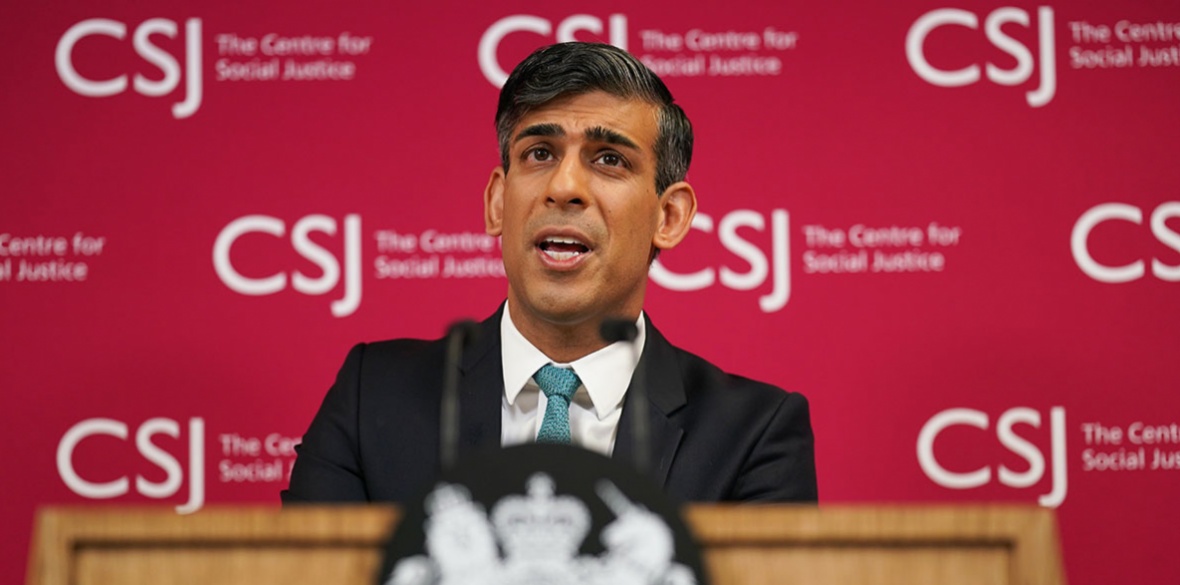PRIME MINISTER Rishi Sunak paid tribute to former Tory leader Iain Duncan Smith when he gave his speech on welfare at the Centre for Social Justice today.
Duncan Smith founded the misnamed centre in 2004, along with leading Tory activist Tim Montgomerie, entrepreneur Mark Florman and Philippa Stroud, since 2015 a Tory member of the House of Lords.
So, although the centre claims to be independent, its right-wing, pro-business bias was clear from the outset, and over the years it has been very influential on Conservative policies in government.
Its stated aim is to “put social justice at the heart of British politics,” and indeed its policy units — education, work and opportunity, addiction, criminal justice, family, debt, housing and communities and modern slavery — sound relevant to that.
But they all ignore the elephants in the room — the capitalist system which is the root cause of inequality, and the government’s handling of the economy, which has driven massive cutbacks to public services and the holding down of pay in the public sector.
Analysis by the TUC shows that the number of people in poverty living in a working household has increased by 1.5 million since 2010. That’s a major social injustice.
And there is no social justice in starving the NHS of resources so that 6.3m people are on waiting lists for consultant-led elective care — still 50 per cent higher than before the pandemic, which in turn was a big increase on the figure under the last Labour government.
There is no social justice in education when Sure Start centres have had to close through lack of funding, and when the average class size of state primary and secondary schools is 27.6 and 22.3 respectively, compared with 16 and 15 in private schools.
On work, the centre says that “upskilling British workers for the post-pandemic economy is becoming nothing short of a national emergency.” But we have a government that has scrapped the UnionLearn funding, which many workers used to improve their skills.
The list could go on. But the point is that “social justice” in this context is a form of double-speak, designed to hoodwink people into thinking that something genuinely helpful is being done, when in fact it is a cosmetic exercise to disguise the real situation.
And it’s the same with Sunak’s speech today. It was full of pious words about how “work is a source of dignity, purpose, of hope,” the role of the welfare state being to “help people overcome whatever barriers they might face to living an independent, fulfilling life,” and the government has “created universal credit to make sure that work always pays” and “introduced the National Living Wage — and increased it every year, ending low pay in this country.”
Well, work can be a source of dignity, purpose and hope — but only if it is properly paid. And in too many cases that doesn’t happen, because the capitalist imperative is to make a profit, and that means minimising the payment for work.
In fact, universal credit effectively subsidises low pay. And the National Living Wage falls well short of the TUC’s demand for £15 an hour, and even more so for workers under 21.
The sting in the tail of Sunak’s message today was the blame implicitly cast on people who are off work with ill health, with a plan to tighten up on work capability assessments and take “fitness for work” determinations away from GPs altogether.
As Zarah Sultana MP tweeted today, “The richest Prime Minister in history … is demonising sick and disabled people,” wanting us “to blame our problems on anyone but the real culprits — the Tory government, their super-rich donors, and a system that puts greed before human need.”
And Nadia Whittome MP noted: “People on benefits didn’t crash the economy. The Tories did. It’s not ‘sick-note culture’ that stops people from working. It’s a mental health crisis and the state of the NHS, which the Tories left to crumble.”









